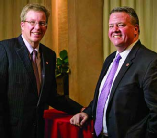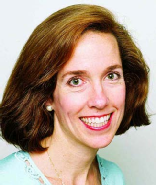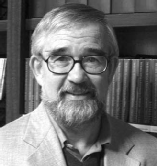By Thomas Mulligan '73, MBA '77
For the past year, I have had the privilege of chairing the Committee on Alumni Trustee Nominations, a hard-working and dedicated group that represents a cross-section of Cornell's diverse alumni body. I am pleased to announce that the committee has endorsed and nominated four candidates to run for two seats as alumni trustees in 2010. They are: Thomas Marino '78, New York, New York; Gene Resnick '70, MD '74, White Plains, New York; Sheryl Hilliard Tucker '78, North Caldwell, New Jersey; Enrique José Vila-Biaggi '94, MEng '95, Guaynabo, Puerto Rico.
In support of the University's plan for sustainability and efforts to reduce overall costs, the decision was made to discontinue the paper option for the annual alumni trustee election. Alumni will vote online (at www.alumni. cornell.edu/trustees) using their NetID. All alumni should have received an e-mail regarding the election.
Please note that campaigning on behalf of candidates is strictly prohibited. If any constituency group, e.g., college, class, club, affinity organization, etc., wishes to announce candidacies in any newsletter or other publication, or in a public forum, it must announce the names of all candidates. If photographs are used, photographs of all candidates must be published. Descriptive texts on candidates' qualifications or their participation in any Cornell activities are not to be used. The alumni election website includes candidates' photos, statements, and biographies. If you have any questions, please contact Beth Hamilton at beth.hamilton@cornell.edu.
And don't forget to vote!
Hotel School Honors Timothy Dick
By Mollie Pulver '80
Timothy Dick, MPS '88, was presented with the Outstanding Alumnus of the Year Award by the Master of Management in Hospitality Program in Cornell's School of Hotel Administration. The eighth annual reception was held in November at the W New York Hotel in New York City. The award recognizes an MMH or MPS alumnus who demonstrates exceptional career progression and continued service to the School of Hotel Administration and its students.

Dick is a frequent guest lecturer and past president of the Cornell Hotel Society. He is also a member of the Counselors of Real Estate, the Hotel Asset Managers Association, and the International Society of Hospitality Consultants. His career spans twenty-two years in the fields of real estate consulting, valuation, asset management, and investment analysis. Currently he is a senior vice president with TriMont Real Estate Advisors, based in Atlanta. His responsibilities include management of a portfolio of hospitality properties located across the United States, Canada, Mexico, and the Caribbean including more than 140 assets valued at $3 billion. The portfolio comprises equity investments, performing loans, and real estate owned assets in primary and secondary markets.
Prior to 2003, Dick was director of asset management at Hardin Capital LLC and was a manager with the Global Hospitality and Leisure Consulting Group and the Real Estate Advisory Services Group of PricewaterhouseCoopers LLP in their Atlanta office.
REPORTS OF OUTGOING ALUMNI-ELECTED TRUSTEES
A Trustee's Perspective
By Kelly Brown '88, MBA '92
Cornell is a wonderfully complex institution. Over the past four years, the Board of Trustees has worked closely with President Skorton and the senior staff to navigate Cornell through some challenging times. Guiding our decisions has been a strong commitment to build from and protect the core principles of Cornell— specifically, its land-grant mission and need-blind admissions policy.

Cornell is well-positioned to be the "land-grant university to the world." This is not driven by arrogance. Rather, it is rooted in a deep belief that we must create the resources and environment for faculty and students to achieve excellence in the pursuit and sharing of knowledge for the betterment of themselves, their fields of study, and society.
Two years ago, the board reaf-firmed Cornell's need-blind admissions policy and created a broader financial aid program. This program enables the best students from around the world to attend Cornell, regardless of their financial status. Importantly, it also allows students to graduate with less debt, so their career choices are not driven strictly by salary concerns.
Today's challenging financial environment has created a healthy tension. The "Reimagining Cornell" initiative will help the University be more cost effective in non-academic areas. Additionally, the work of faculty task forces will help Cornell think about how it can even better leverage its unique breadth and depth. In the future, some aspects may feel new and different—but at the core, Cornell will still be the institution that alumni know and love.
My first meetings as a trustee were during the inauguration of President Skorton. Four years later, I have a deep respect and appreciation for his visionary leadership and pragmatic management abilities. He is supported by a strong senior management team and an extremely dedicated, knowledgeable, and selfless Board of Trustees.
It has been an honor and a privilege to serve as an alumni-elected trustee. Thank you for entrusting me with this responsibility.
Glorious to View
By Philip Reilly '69
Becoming a trustee is like becoming a college freshman. It takes a year to get the hang of things, so one observes carefully and acts cautiously. Great mentors (in my case, Sam Fleming '62), help you get up to speed—but you are, alas, a freshman. For the next two years, you diligently participate on the committees to which you are appointed, get to know the University's talented staff, and become part of the dynamic board meetings. Suddenly, you are a senior and it is almost over. Or so I thought.

During my last year, I was appointed to a small task force to evaluate a proposal by the leaders of Weill Cornell Medical College to build a research facility on some of the most expensive real estate in the world. The goal was clear and defensible: replace aging research space with a cathedral of science that will help Cornell remain highly competitive in the battle for NIH funding. But in addition to the arrhythmia-inducing $650 million cost of the building, the Medical College estimated that it would need many millions more to recruit and retain top scientists.
The largest proposed building project in Cornell's history emerged with the economy in free-fall and our portfolio battered. While there was widespread desire to support the Medical College's reach for research greatness, there was understandable concern about the financial risks. Despite the extraordinary fundraising success of Dean Antonio Gotto and the Board of Overseers, the trustees still faced the decision of whether to authorize a significant amount of new debt. The task force labored mightily to assess the risks and benefits and to reach a well-reasoned conclusion to present to the board, which voted in January to approve the project.
I can say that being a Cornell trustee is not for the faint-hearted! I can also say that Cornell is led by an extraordinary president and a great board.


